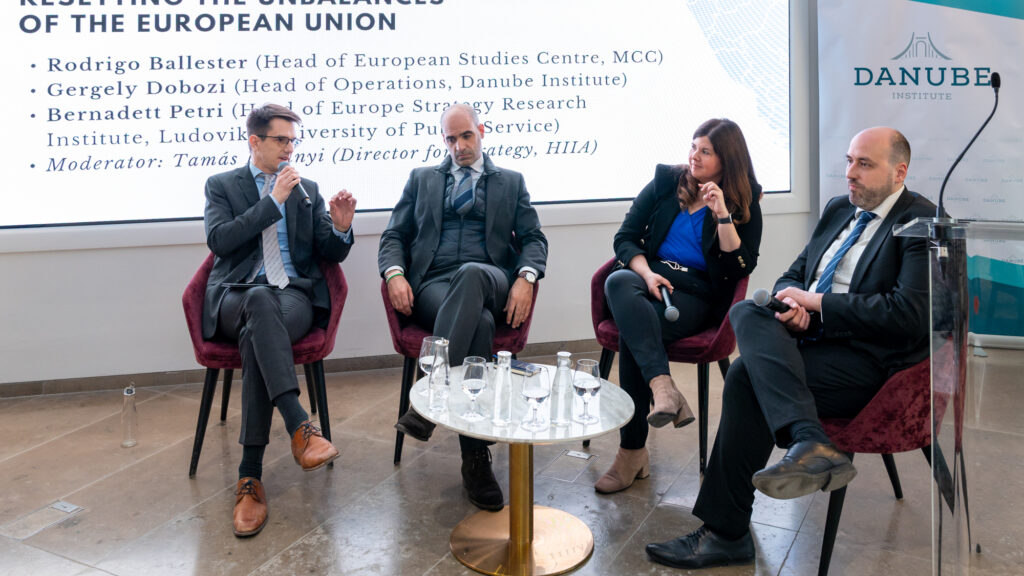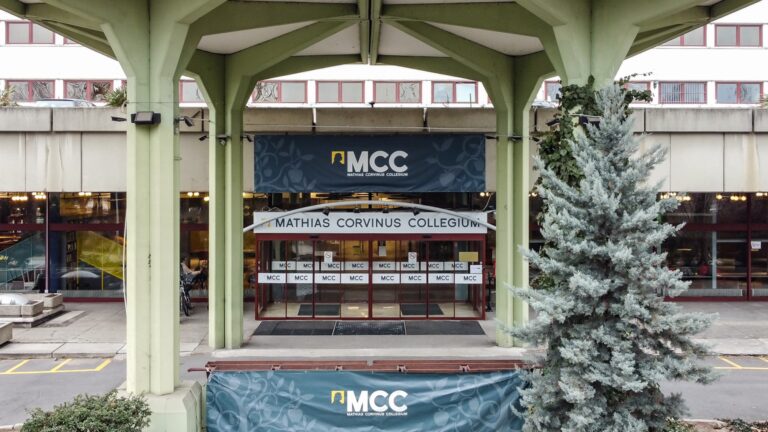Hungary’s EU presidency ended last December; however, the impact of its achievements will shape Europe’s future in the long term. From significant progress in the accession of the Western Balkans to the EU and the expansion of Schengen to the adoption of the Budapest Declaration on Competitiveness, Hungary made tangible changes aimed at helping Europe regain its position as an influential player in international politics during what was arguably one of the most successful EU presidencies in the history of integration.
On Monday Budapest-based think tanks Danube Institute and the Hungarian Institute of International Affairs (HIIA) co-organized an event entitled ‘Making Europe Great Again — How Hungary’s Presidency is Changing Europe Today’, attended by Minister for EU Affairs János Bóka.
The Recipe for a Strong, Prosperous Europe
Delivering his keynote speech, Bóka pointed out that ‘Europe’s prosperity cannot be taken for granted’, and that restoring the EU’s long-lost competitiveness requires genuine political action. As he explained, it quickly became evident that Hungary would assume a political presidency because Europe is in need of change. This necessity has become even clearer since Donald Trump took office on 20 January, accelerating the transformation of the global order.
Bóka underlined that a holistic challenge requires a holistic response. ‘The solution cannot be for us to become like America or China. We must find a European solution to our problems, and this will not be easy,’ he stressed.
President of HIIA Gladden Pappin also spoke at the conference, highlighting that during Hungary’s presidency, an alternative recipe for the success of a strong, sovereign Europe was proposed—a recipe that has since proven to be highly relevant.
Bóka János on X (formerly Twitter): "Change is needed in Europe, and #HU24EU wanted to be the catalyst for this change.📍During our Presidency Member States adopted the #BudapestDeclaration to improve the EU's #competitiveness. 📍We made significant progress in the accession process of #WesternBalkan countries.... pic.twitter.com/ooHFst8bnf / X"
Change is needed in Europe, and #HU24EU wanted to be the catalyst for this change.📍During our Presidency Member States adopted the #BudapestDeclaration to improve the EU's #competitiveness. 📍We made significant progress in the accession process of #WesternBalkan countries.... pic.twitter.com/ooHFst8bnf
Challenges Hindering a Competitive Europe
The event was concluded by a panel discussion on the imbalance of the European Union in its current state, and what drives division between member states. Panellists included Bernadett Petri, Ministerial Commissioner for the coordination of direct EU funds at the Hungarian Ministry of Public Administration and Regional Development; Rodrigo Ballester, Head of the European Studies Workshop at Mathias Corvinus Collegium; and Head of Operations at the Danube Institute Gergely Dobozi. They explored key issues such as the rule of law, regional cohesion policy, bureaucracy, and the Green Deal.
Petri highlighted that ‘the East–West divide is still there, but beyond that, the real issue lies between EU policies and the interests of member states, as well as between the EU and its citizens.’ She emphasized that addressing regional disparities is essential for fostering economic growth and social stability, adding: ‘Cohesion policy should continue to address regional disparities, supporting economic growth and social stability.’
Petri also reflected on Hungary’s EU Presidency, emphasizing its focus on addressing regional disparities, promoting competitiveness, and aligning EU policies with member states' interests. ‘The Hungarian Presidency aimed to restore trust between the EU and its member states, advocating for policies that respect national sovereignty while strengthening European cooperation,’ she stated. Petri highlighted the importance of promoting a balanced approach to rule-of-law enforcement and reducing bureaucratic burdens to enhance the EU’s competitiveness.

Ballester also identified bureaucracy as a key obstacle to competitiveness, particularly under the controversial Green Deal. He described the Corporate Sustainability Reporting Directive (CSRD) as an example of excessive regulation, with its 284 pages of requirements creating challenges for businesses. ‘Reducing bureaucracy by 25 to 35 percent is not enough—it’s too little, too late,’ he remarked. Ballester also addressed the EU's decision-making process, warning that extending qualified majority voting might undermine member states’ sovereignty. ‘Unanimity protects member states’ core interests, especially in foreign policy,’ he said.
Dobozi focused on the rule of law mechanism, criticizing its current implementation. ‘The European Commission acts as the prosecutor, judge, and executioner, which undermines legal certainty and transparency,’ he argued. He pointed to inconsistent treatment of Hungary compared to Poland, whose status changed when its government shifted to a more federalist approach under Donald Tusk. Dobozi called for reforms to ensure fairness and transparency, emphasizing the need for clearer guidelines and consistent enforcement of the rule of law mechanism.
The panel concluded with key recommendations: reducing bureaucracy to improve competitiveness, maintaining regional cohesion policy, and promoting greater subsidiarity. The speakers agreed that addressing these issues is essential for reducing divisions within the EU and fostering a more unified and prosperous Europe.
Related articles:








